Have you ever missed a deadline and felt that sinking feeling of disappointment? We've all been there at some point, grappling with the pressure of our commitments. Crafting an effective apology letter can not only mend relationships but also restore trust. If you're looking for guidance on how to express your regret and outline your next steps, keep reading to discover a helpful template!

Acknowledge Responsibility
Acknowledging responsibility for missed deadlines is crucial in maintaining professional relationships. In the context of a project involving multiple team members at a corporate office (such as a marketing agency in New York City), an individual's failure to submit a report on time can disrupt workflows and impact overall productivity. Effective communication should include a clear statement of accountability, recognizing the specific factors contributing to the delay, such as unforeseen circumstances or personal challenges. Taking ownership demonstrates professionalism and builds trust with stakeholders, emphasizing the importance of timelines in collaborative environments and assuring them of a commitment to improve future performance.
Offer a Genuine Apology
Missed deadlines in professional settings can impact project timelines and stakeholder trust. Acknowledgment of the oversight is crucial in maintaining relationships. When a deadline is missed, it's essential to express sincerity in the apology, highlighting the specific task associated with the deadline and the reasons for the delay. Clarifying any external factors that contributed, such as unforeseen circumstances or resource constraints, allows for understanding. Additionally, offering a clear plan for future actions to rectify the situation and prevent recurrence is vital, fostering a commitment to accountability and reliability in future interactions.
Provide Reason for the Delay
Unexpected personal circumstances, such as a family emergency or sudden illness, led to the inability to meet the established deadline for the project submission. These unforeseen events occurred during the critical final stages of the assignment, specifically in the last week of the timeline, causing significant disruption to the planned workflow. Consequently, the quality and thoroughness of the work were compromised, preventing the completion of the deliverables by the due date. Acknowledging the importance of deadlines, especially in professional settings, this situation has highlighted the need for better contingency planning for future projects.
Present a Plan for Resolution
An effective approach to addressing missed deadlines involves acknowledging the setback and outlining a clear plan for resolution. For instance, a project milestone missed in a development project can be attributed to unforeseen resource allocation issues in the software engineering team. Acknowledge the specific deadline (e.g., January 15, 2024) and explain the impact of this delay on subsequent deliverables, thus emphasizing the importance of timely communication. Following this, propose a detailed plan that includes revised timelines with specific dates (e.g., completion of prototype by February 5, 2024) and allocating additional resources such as hiring freelance developers or extending working hours. Reinforce commitment to the project by scheduling regular progress updates, ensuring transparent communication, and enabling collaborative problem-solving. This proactive strategy can mend relationships and assure stakeholders of dedication to meeting project goals effectively.
Assure Preventive Measures
Unexpected delays can hinder project timelines, resulting in missed deadlines. Acknowledging the responsibility for this lapse is crucial, especially in collaborative environments. Implementing preventive measures such as enhanced project management tools and regular progress check-ins can mitigate these occurrences in the future. For example, adopting software like Asana or Trello can improve task tracking, while scheduled weekly updates can facilitate communication among team members. Ensuring accountability through clear assignment of roles and deadlines can further enhance overall efficiency and commitment to project timelines.

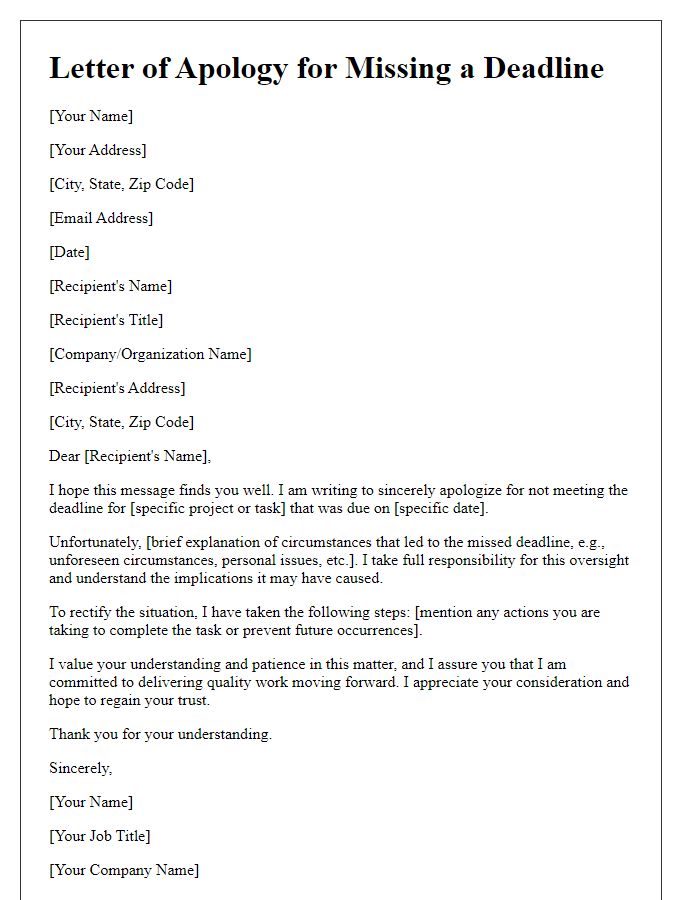
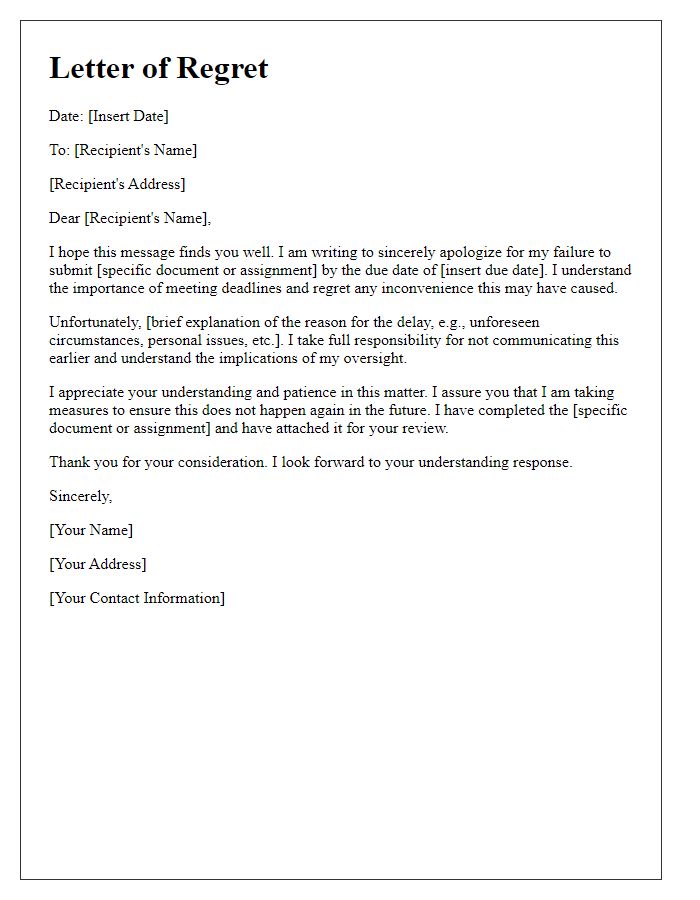
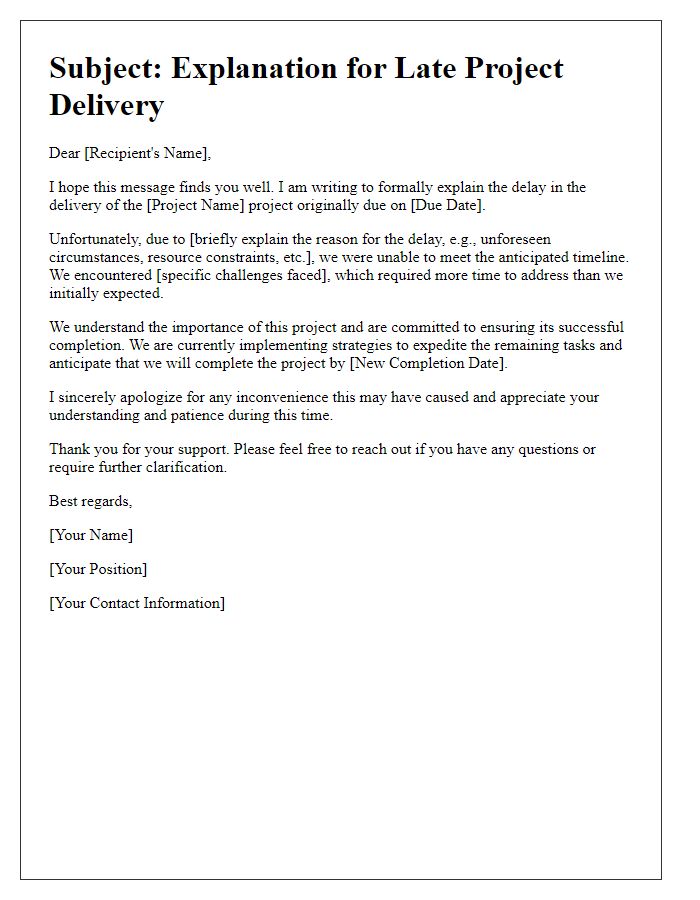
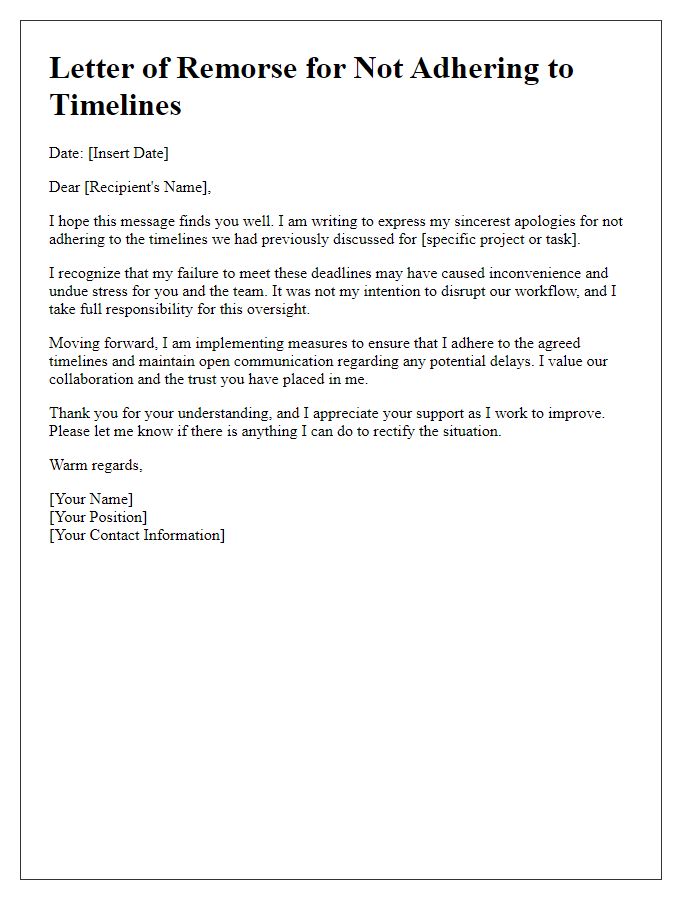
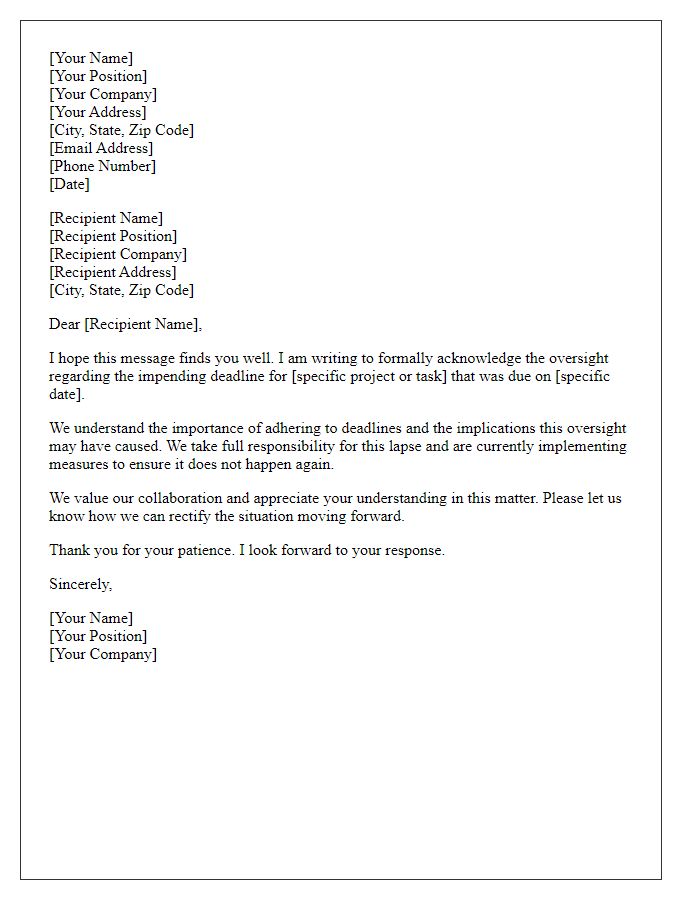
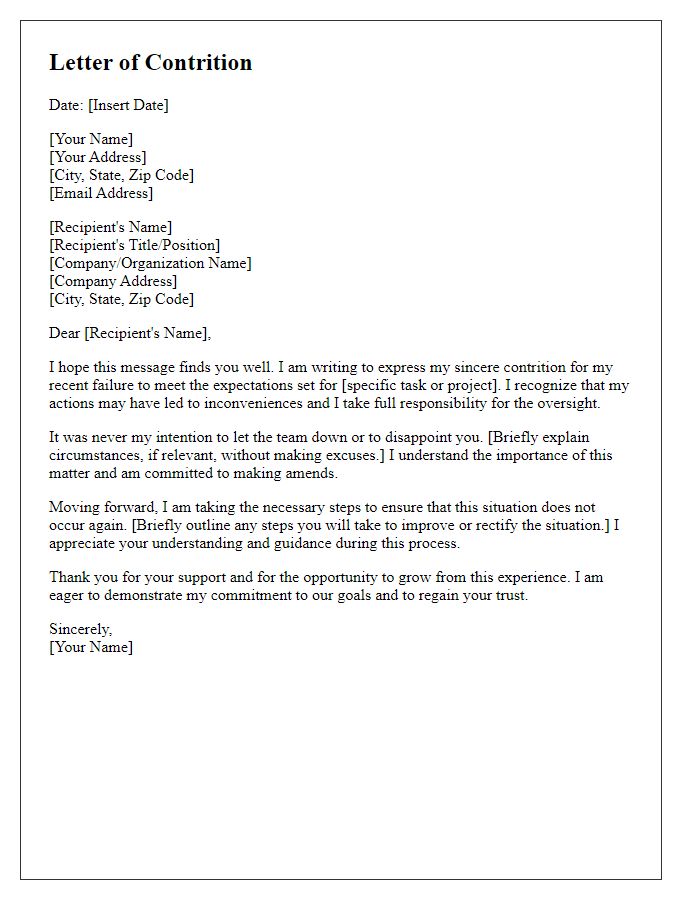
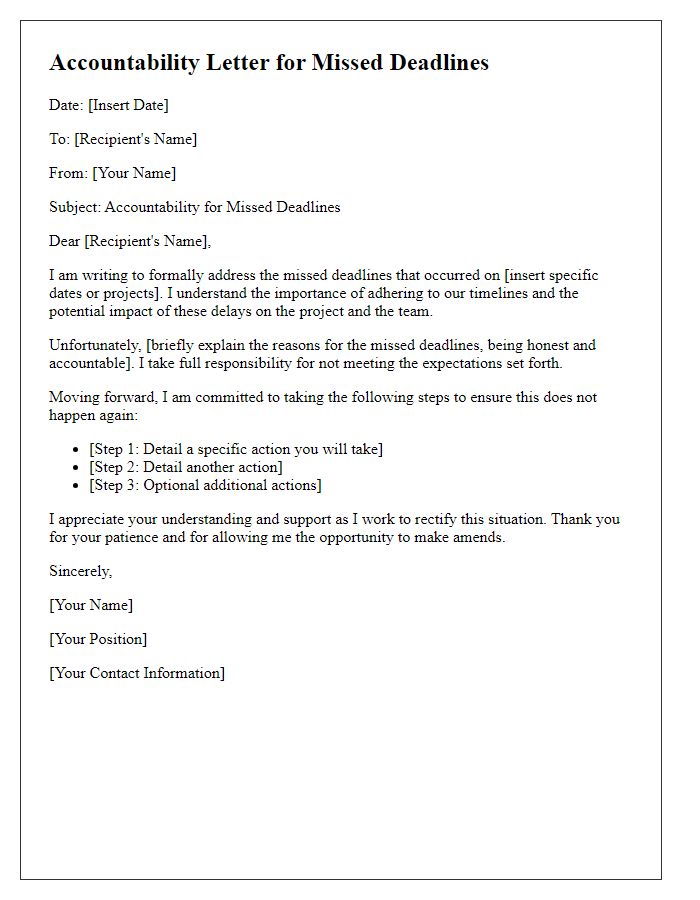
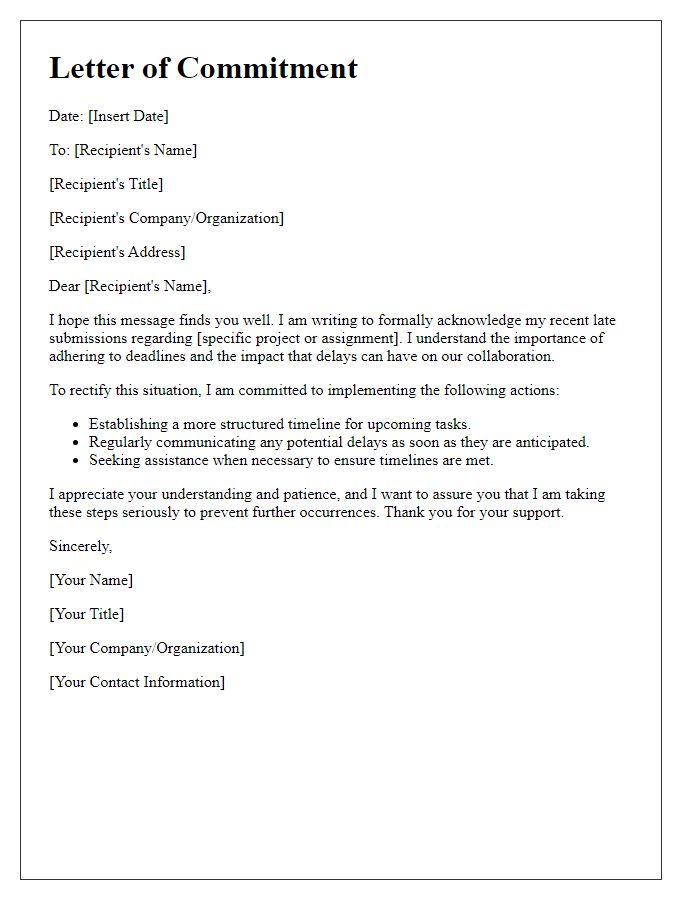
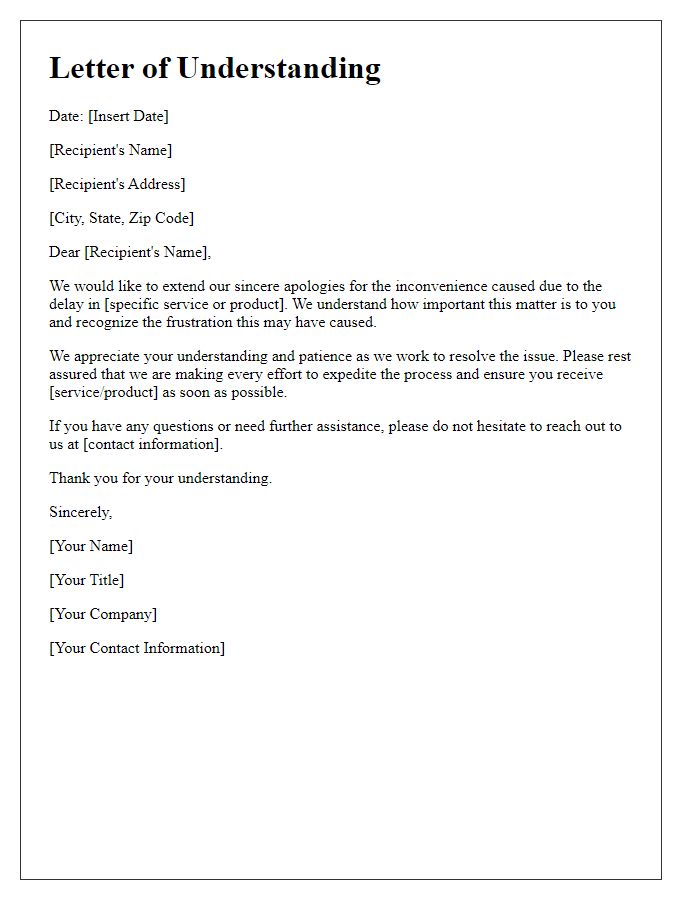
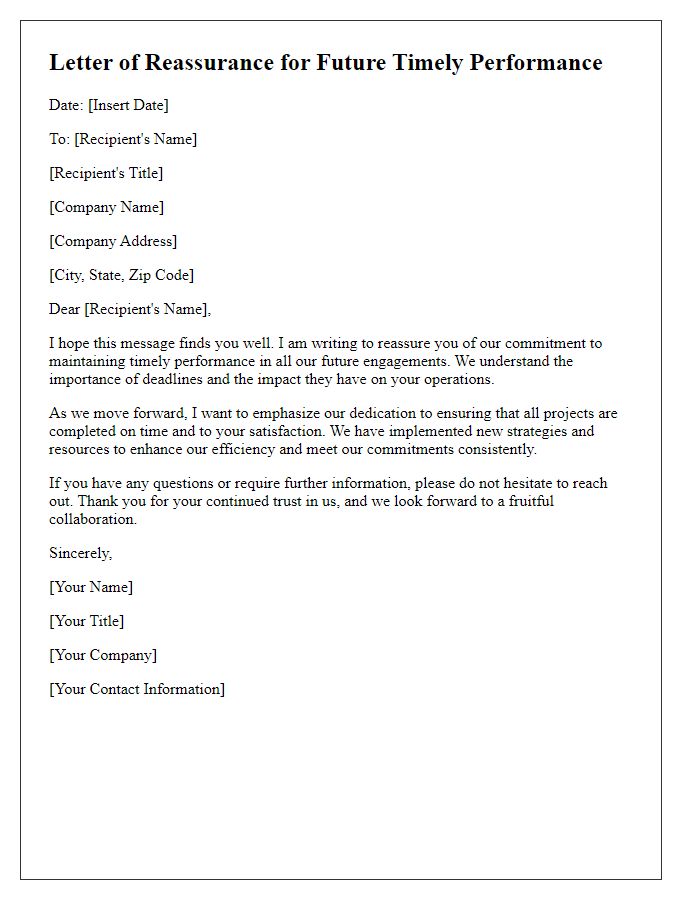


Comments